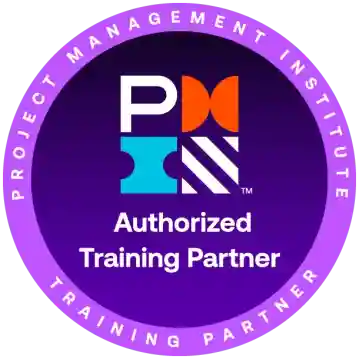Become a Machine Learning Problem Solver – One Question at a Time
The Machine Learning Certification Practice Tests course with 110+ questions and and 4 Practice Tests is your definitive skill-check resource for mastering the core principles, workflows, and techniques that power real-world ML applications. Designed to support both certification readiness and practical problem-solving confidence, this Machine Learning Certification Practice Tests course walks you through hundreds of scenario-based questions covering the full spectrum of machine learning.
Whether you’re starting your ML journey or sharpening advanced skills, this course is your launchpad to become a confident, competent, and certified machine learning practitioner.
Enroll now to challenge your understanding, grow your confidence, and prepare for real-world ML success.
Gururo is a PMI Authorized Training Partner
At-a-glance
Best for
- Aspiring data scientists
- Software engineers
- Freelancers and consultants
- Ayone serious
Why Gururo?
- Lowest Cost
- PMI Authorized Training Partner (ATP)
- 24*7 Support
- 365 days access
Course Details
- 4 full-length ML practice exams
- 110+ challenging questions
- Instant Access
- Certificate of Completion
Highlights
- Realistic Exam Simulation
- Aligned with actual exam blueprint
- Progress Tracking & Review option
- Unlimited Attempts
What You’ll Learn
- Analyze and interpret datasets using statistical techniques and visualization tools to uncover patterns.
- Build and validate machine learning models including regression, classification, clustering, and recommendation systems.
- Apply supervised and unsupervised learning algorithms to real-world datasets.
- Implement model evaluation metrics such as precision, recall, F1 score, and ROC-AUC.
- Utilize Python libraries such as Scikit-Learn, Pandas, NumPy, and Matplotlib for ML workflows.
- Conduct feature engineering and selection to improve model performance and interpretability.
- Manage data preprocessing, scaling, encoding, and splitting for optimal pipeline design.
- Identify and mitigate overfitting and underfitting through regularization and model tuning.
- Build end-to-end ML projects from data loading to model deployment.
- Prepare for technical interviews and machine learning certification exams with scenario-based problem sets.
Real-World Application & Coverage
- Solve real-world data science challenges:
- Cleaning and preparing data with outliers, missing values, and categorical features.
- Choosing and evaluating algorithms for marketing, healthcare, finance, and e-commerce datasets.
- Balancing accuracy with interpretability and runtime constraints.
- Deploying trained models and managing pipeline automation.
- Key certification topics covered:
- Bias-variance tradeoff.
- Cross-validation techniques.
- Regularization and feature importance.
- Ensemble methods: Random Forest, Gradient Boosting.
- Unsupervised learning: k-means, PCA, hierarchical clustering.
What You’ll Gain:
- Fluency in selecting appropriate algorithms for regression, classification, and clustering tasks.
- Practical understanding of interpreting model performance and metrics.
- Confidence in performing preprocessing, scaling, feature selection, and model tuning.
- Skill in debugging model errors, optimizing performance, and interpreting predictions.
- Readiness for machine learning interviews and coding assessments.
- Familiarity with tools used in real-world ML development: Python, Pandas, Scikit-learn, Matplotlib, and more.
Course Requirements / Prerequisites
- Familiarity with Python programming fundamentals is recommended.
- A basic understanding of statistics and probability concepts will enhance comprehension.
- Access to Jupyter Notebook or any Python IDE for hands-on practice.
- Willingness to explore datasets and interpret analytical results critically.
- Curiosity about algorithms and their behavior on structured data.
- No prior ML experience required—this course supports progressive learning.
- Enthusiasm to learn from mistakes and analyze model outputs and errors.
- Openness to mathematical thinking and data-driven reasoning.
- Readiness to experiment with hyperparameters and model configurations.
- Commitment to developing a portfolio of ML problem-solving capabilities.
Who Should Take This Course?
- Aspiring data scientists preparing for machine learning job interviews or technical evaluations.
- Students and graduates seeking to test their ML skills and build practical project readiness.
- Working professionals transitioning into machine learning or data-driven roles.
- Analysts and business intelligence professionals looking to enhance their analytical toolkit.
- Software engineers incorporating machine learning into development pipelines.
- Career switchers pursuing roles in AI, machine learning, or data science.
- Freelancers and consultants offering ML-based solutions and looking to validate skills.
- Developers preparing for ML certifications such as TensorFlow Developer or AWS Machine Learning Specialty.
- Academics and researchers testing algorithmic intuition with applied ML challenges.
- Anyone serious about mastering machine learning through structured, problem-based learning.



















